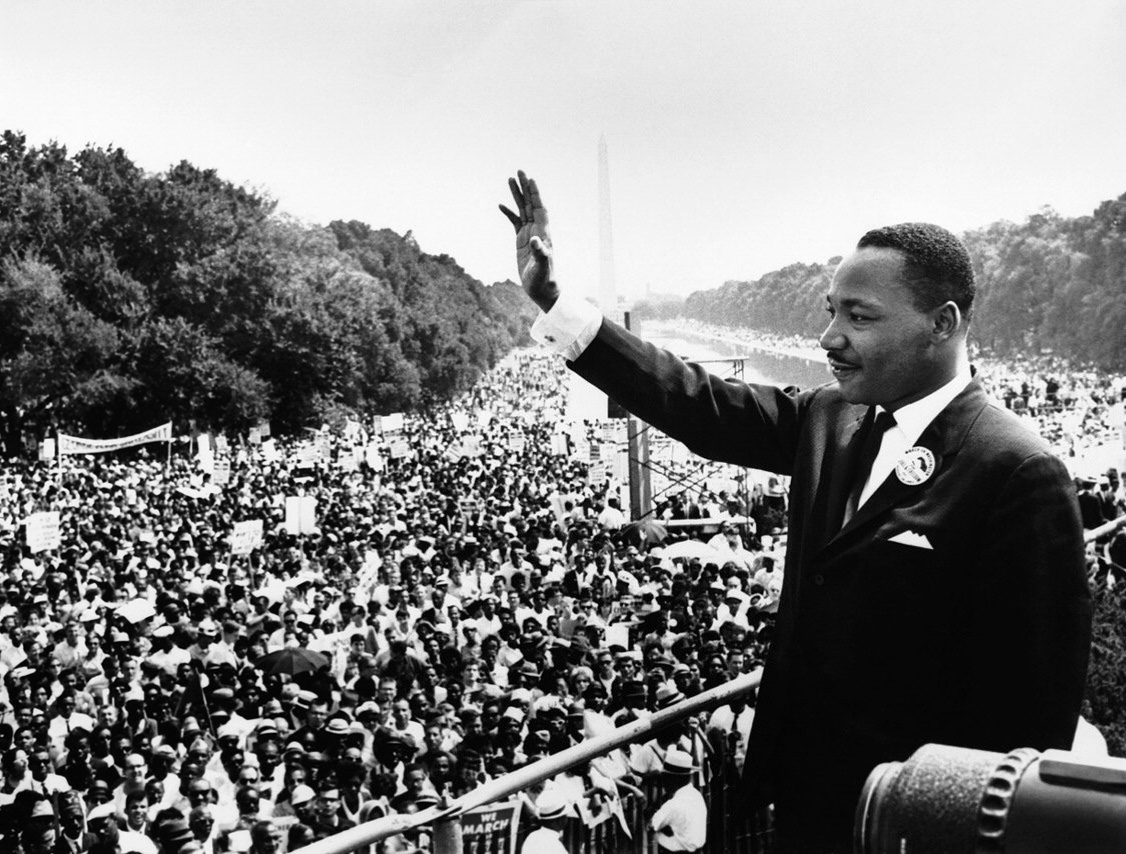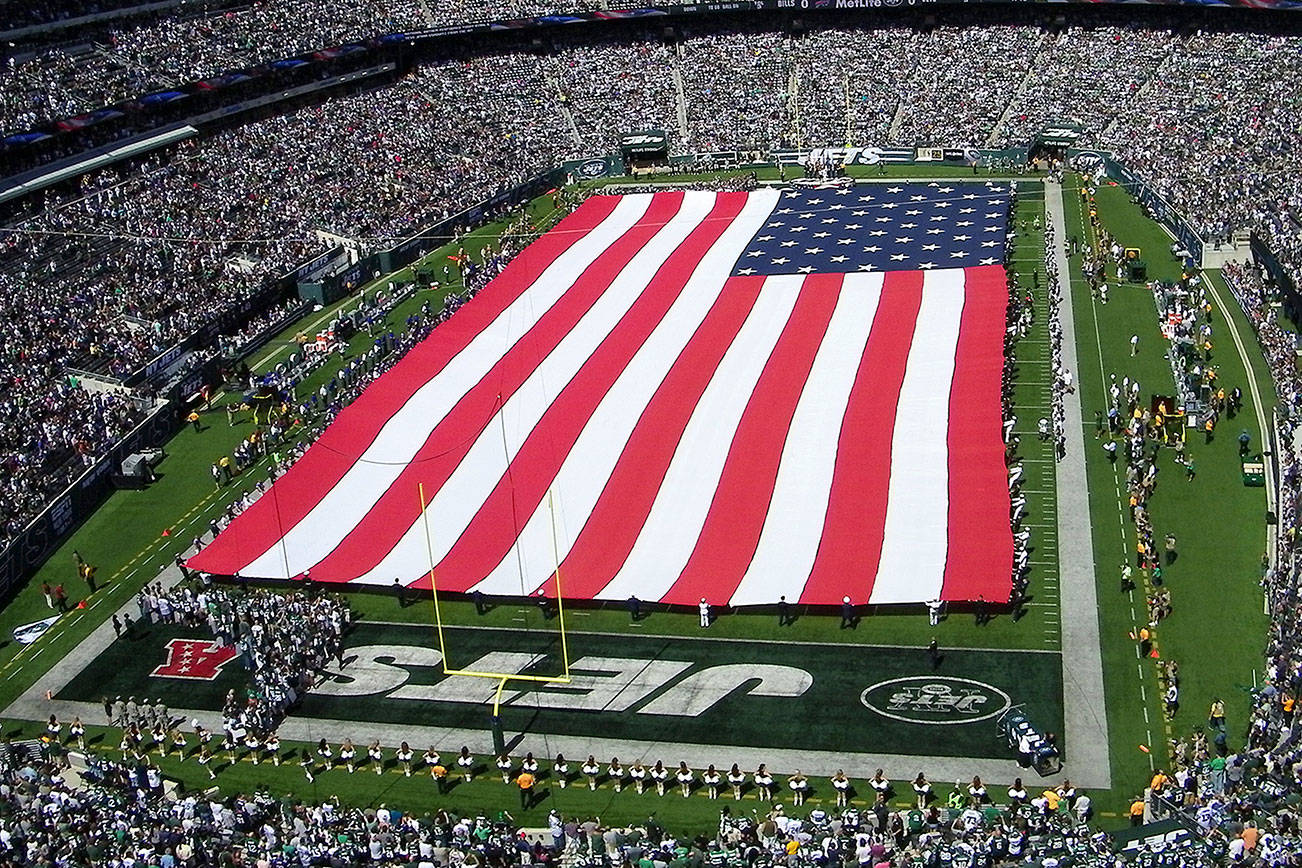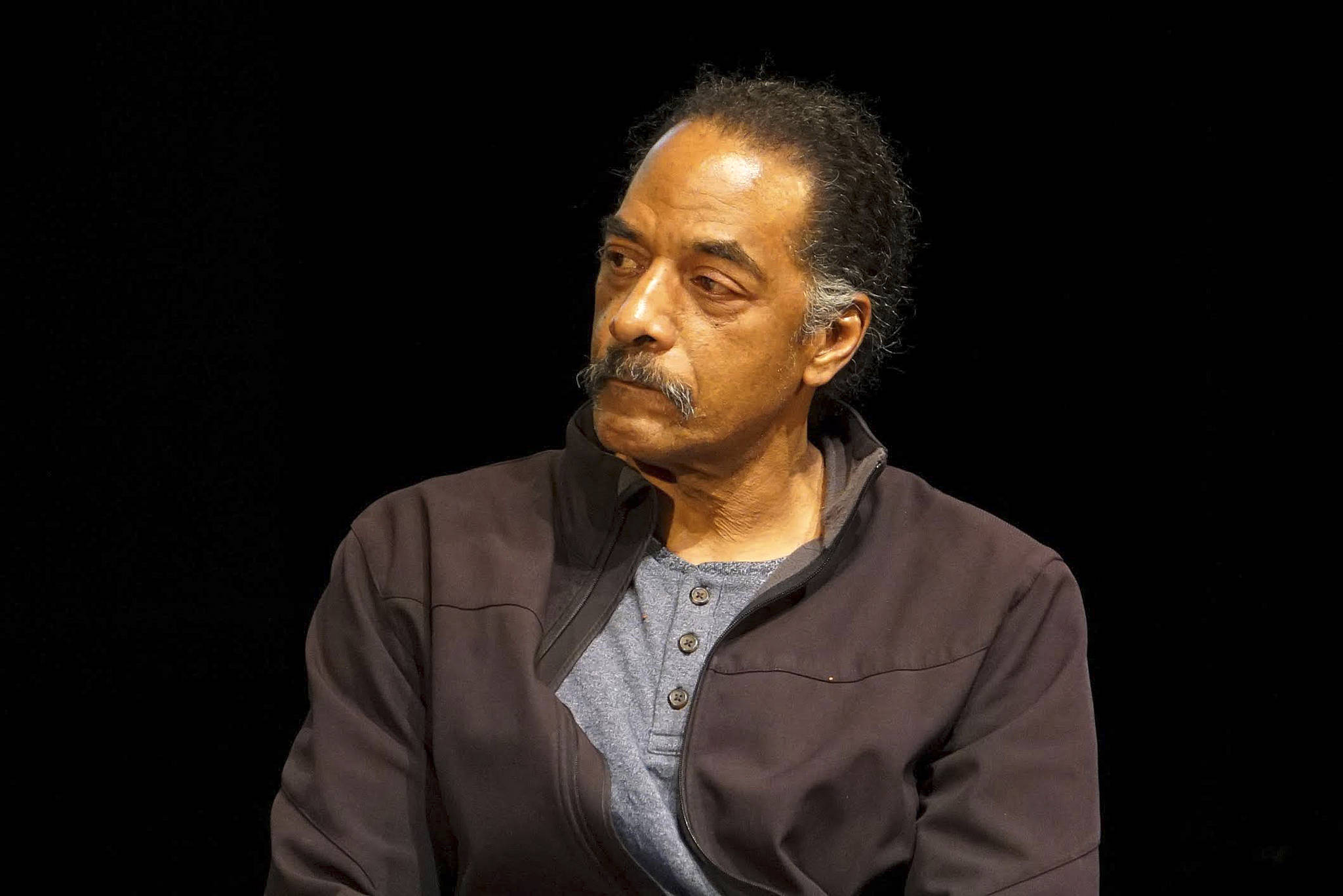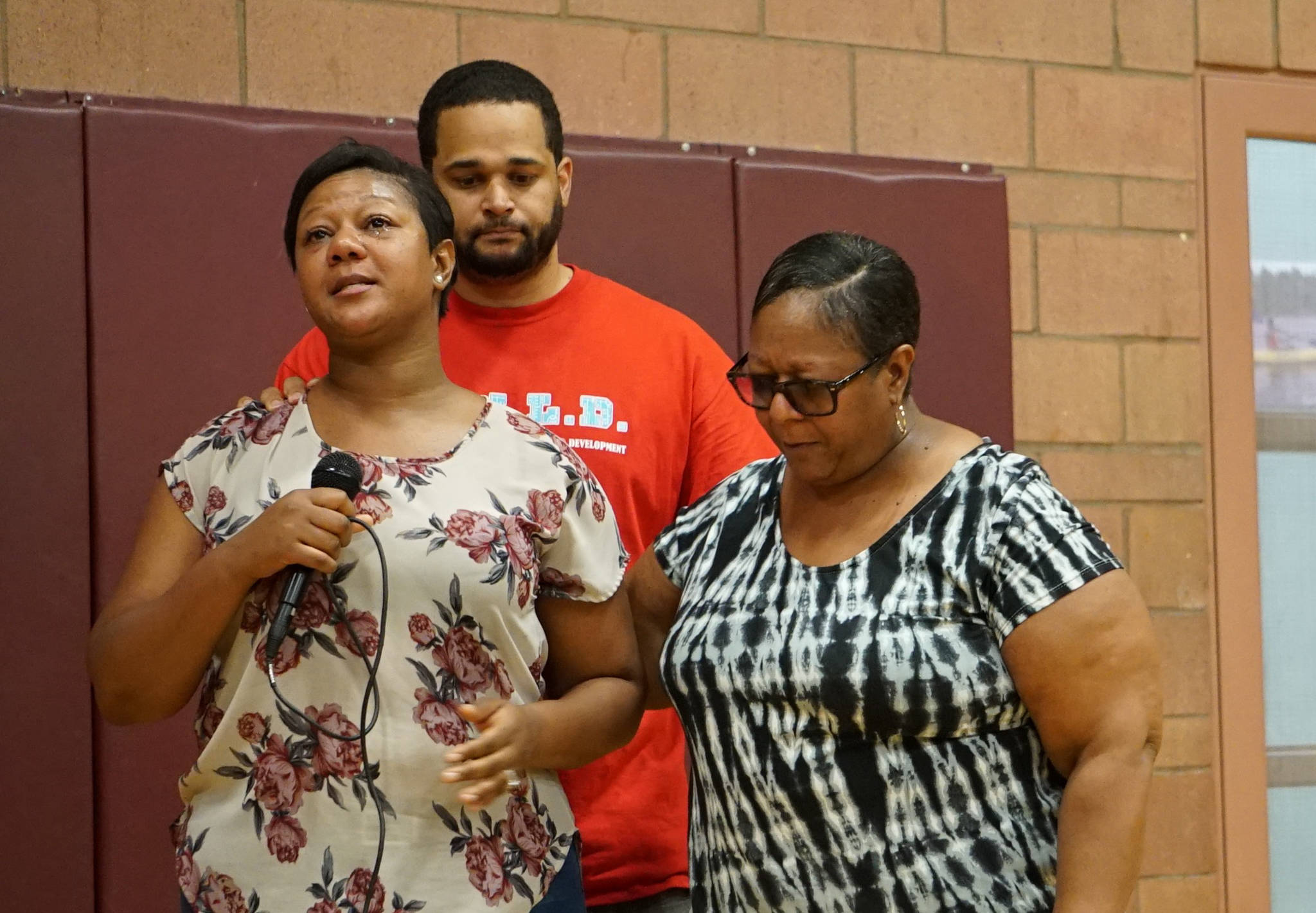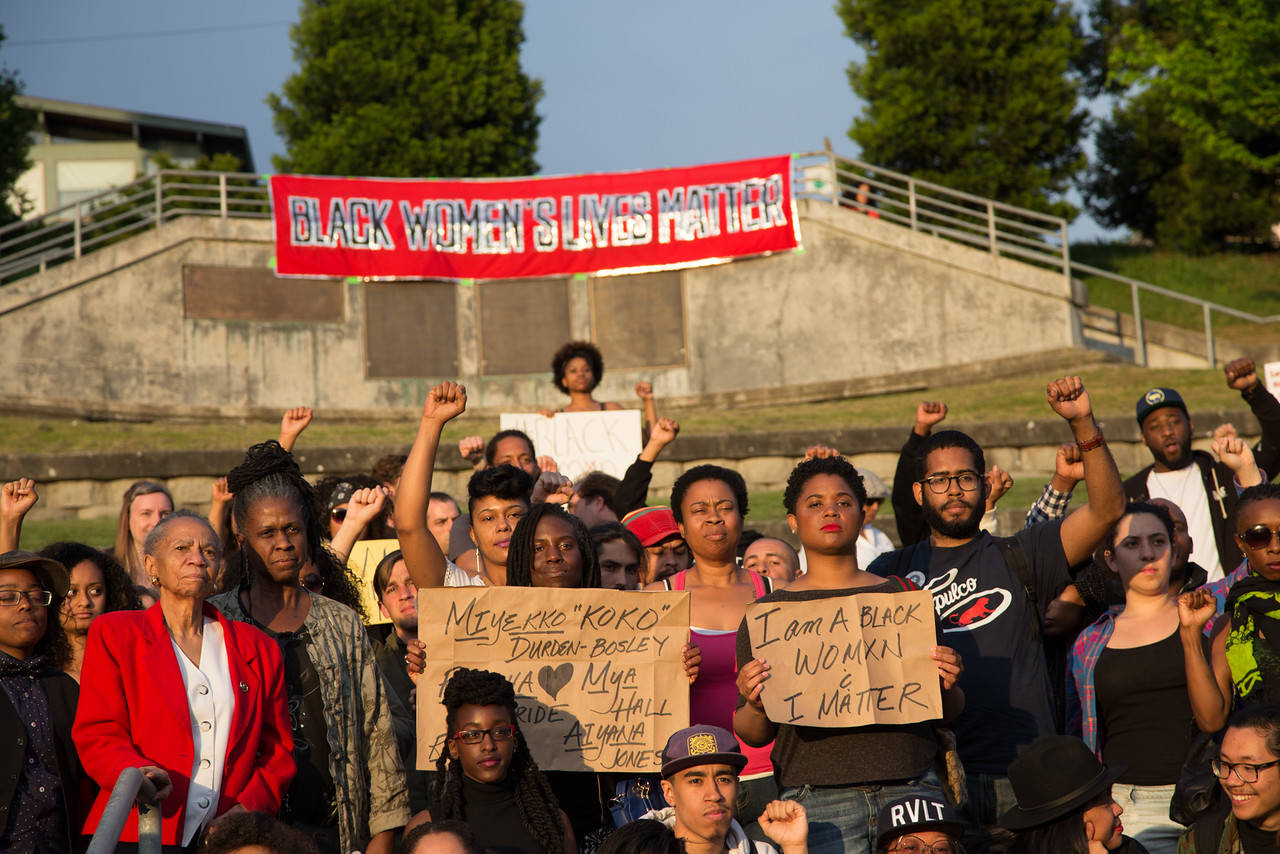On the afternoon of Friday, January 15, a thousand people of varying ranks, ages and races gathered at the Mt. Zion Baptist Church in Seattle’s Central District for the 34th Annual MLK Celebration at Seattle Colleges. There they honored the memory of Martin Luther King Jr. by asking a question inspired by his final speech, one given the day before the civil rights leaders was felled by an assassin’s bullet. King spoke then of a mountaintop that he had seen, one that awaited all of humanity. On Friday, those who stand in his shadow asked, “Are we there yet?” The uniform answer, from the handful of politicians on hand to 5th graders of John Stanford International School reading poems, was a somber “no.” The same answer came from the afternoon’s keynote speaker, Marcus Harrison Green. And yet Green, the executive director of the South Seattle Emerald, reporting fellow at Yes! magazine and a contributor to Seattle Weekly, managed to move the congregation upward like none of the others. On this Martin Luther King Jr. Day, we felt it appropriate to share his words. —Mark Baumgarten, Editor-in-Chief
When they first asked me to speak here today, and told me they wanted me to answer the question of whether or not society had reached Martin Luther King’s “mountaintop of racial harmony,” I’ll have to be honest; my initial reaction was that these people have got to be crazy if they think this speech is going to last any longer than three seconds.
But after realizing I was expected to deliver more than a one syllable reply, the question really got me to thinking, which depending on who you ask is a dangerous proposition—but we’ll table that discussion for today.
Thinking deeply about the question actually took me back to a day seven years ago, to the last day of my grandfather’s life.
January 20th, 2009, I remember it vividly. To me that day was the height of what it meant to be black in the country—The day I thought we reached that mountaintop, that was certainly the mood at the time. It was the day an African American man finally strolled with his family down Washington, D.C.’s Pennsylvania Avenue to get sworn in to the highest office in this nation.
Cloud nine wasn’t high enough for me that day—I was on Cloud Infinity to the Fifth Power, and what made it sweeter, what made it even more memorable, was that I shared it with my grandfather. He had been debilitated by a heart condition for months, but on that day he got up the strength to watch the inauguration.
My grandfather Jimmie Green was not an emotional man, unlike his grandson. Growing up I never once believed he was capable of shedding a tear. But that day he couldn’t help but be overcome with joy, the type of joy that only comes when you finally see something that for so long you’ve been told is impossible to view.
And so I asked him, I asked this man who had grown up as sharecropper in a segregated Arkansas; who, because of the laws of that time, was forbidden from going beyond an eighth grade education; who had been called “boy” so long it took him until his late twenties to fully believe he was a “man”; who wasn’t allowed to fight for this country in a segregated military, but was allowed to cook for the soldiers who did; and who couldn’t cast a vote for a president until he was 35. I asked my grandfather if he ever thought a man who looked like the one he cast his vote for that November could ever become president.
No, he answered. No, I never ever dreamed a day like this was possible.
But, Marcus, he cautioned, be careful, because as good a day as this is, it’s just one, and we need many more. We still have higher to rise.
That’s the last thing he ever told me, later that night he fell into a coma and would passed away, having seen the impossible.
But his words always stuck with me, though they were hard to fully process at first.
Like most Americans, I found it difficult not to be seduced by the notion of a society that had finally vanquished its race problem. That we had now ushered in a golden era of colorblindness. This era, where mentioning race more than a minimal amount in mixed company is enough to charge you with the crime of waging social justice jihad.
It’s hard—almost impossible—for us not to be seduced by the pervasive assumption that we are more than 90 percent of the way to racial utopia. Somehow, we are supposed to believe that this nation’s history, one of genocide, slavery, suppression, and exclusion, cannot possibly impact our society either now or in the future. That blatant acts of racism are now few and far between, relegated to the margins of simple-minded militia members in western Oregon, or the bloviating, fascists presidential candidates they lovingly flock to.
We can point to the room that has been made for people of color and women at the top of our society’s totem pole. Their high visibility in positions of power.
We can point out that explicit forms of racism have been on the wane since the days MLK spoke of his mountaintop. No more are there police dogs that ravage the bodies of marchers; no more are there billy clubs that fracture the skulls of protestors; or water hoses to impede their progress. No more signs to designate where we can or cannot be seated or served.
Sometimes we forget that there’s a world outside of the social circles we’ve cocooned ourselves in. Being a journalist forces you to step out into the larger one you sometimes forget exists. It’s in that world that I hear so stridently that racism is largely a thing of the past, evidence be damned.
I hear that racism is dead from some of my own black brothers when discussing the case of Sandra Bland, the woman mysteriously found dead in her prison cell after a routine traffic stop, or the case of John Foster, killed within seconds of Ohio police arriving to a Wal-Mart for holding a BB gun.
Many of them—long conditioned to what they call “proper” interaction with law enforcement—tell me Bland and Foster should have known to mind their p’s and q’s in front of an officer. That, ultimately, the duo is responsible for their own deaths.
I hear tales of racism’s demise so often from my white liberal brothers and sisters, who spout that the true culprit is a crisis of culture, a lack of personal responsibility, and a chronic condition of moral malaise.
I hear of its end in the midst of a society whose black infants are three times more likely than white babies to die within the first months of birth, despite no biological deficiency.
I hear racism is a relic in a society that mocks the provision of safe spaces for its marginalized students, while actively creating an entire world of implicit safety for those it values.
I read racism’s obituary even after a recent reporting trip, when a white mother told me that she could never know what it was like to suffer in the same way that a black mother does in this country, because if her 12 year-old child was to be killed by a police officer, her son’s murder would be a crime.
Racism is not dead. It is just like the Greek hydra, that beast that regenerates in a new form just as you’ve begun to celebrate its defeat.
No, racism is not exclusively overt as it once was. What it is now is sophisticated. What it is now is systemic.
For every Tamir Rice dead in the park, our current form of racism creates a million Tyrones half his age, who are predestined to a life of poverty by an inferior school system.
For every Bettie Jones, needlessly killed by Chicago Police responding to a dispute she had nothing to do with, it creates a million Yvettes who will die an early death because they are economically bound to an area with limited access to health care.
For every Trayvon Martin, there will be a million Andres swallowed whole by a criminal justice system that will never offer a chance for redemption. That will forever brand them with a scarlet “F” for felon. They’re life, now absent of opportunity, will be nothing more than a slow death.
As it was once housed prominently in the hearts of unrepentant bigots, racism stubbornly finds shelter in the institutions of our society, and that society’s systems.
The gears of these systems continue to be greased with black bodies, and function regardless of the good intentions of the men and women pulling the lever. It does not matter whether the hands of the people in power holding that lever are black, as they are in the city of Baltimore, or if those hands are white, as they are in Ferguson, Missouri.
Nor does it matter if they are brown or beige or metallic marble,
The outcome is always the same: mass devastation of black life.
So, are we there yet? To ask the question in this country is to answer it.
The racism we encounter today can’t be solved by old efforts, nor civil rights-era understandings of what we face. In truth, we can’t even entertain the question of “are we there yet?” before answering a more important one: Where are we?
That question is tougher, because we occupy different planes of existence in this country, and so we must be honest about our social locations in this society.
Because you can only know what direction to go by knowing exactly where you stand.
What guides us to those locations is a word that is so misused, and cheapened by that misuse.
Love.
When I say the word, I say it as one that equates to the resiliency needed by those who fight for racial justice, with seemingly no avail, to the point that their spirits’ knuckles are raw and bleeding, and yet they must continue to fight.
I say that word that is synonymous with the acceptance necessary by those to whom this life bestows advantages, whether it be because of pigment, or class. Who must see past fragility and privilege and realize that to consider your life in context is not a demonstration of weakness, but an exhibition of character.
When all groups who have been discriminated against in this country sit down to eat at America’s dinner table, it’s love that asks them to understand that when they see a race that has been malnourished for so long pleading to feed on America’s promises, that race is not insisting that all others sitting around the dinner table should starve. They are just trying to eat like everyone else.
I say love in a way that translates to faith, the faith required of all of us. Faith in that what so often goes unseen in our human brethren. Faith in their capacity to change. Their capacity to grow.
That word and the deeds it inspires, is the only way I know to change this world. This world we live in by choice, and yes our collective circumstance is a choice.
I know that last point causes cynics to grind their teeth. They think this world we live in is the best of all possible, That our present is as good as it can possibly get. But this world in its present state is constructed by no laws of nature. It is built on a foundation of ideas, beliefs, and doctrines of people, and kept in place by our fear, apathy, and resignation.
And it can only be undone by the new ideas, imagination, and beliefs of other people.
We can live in a society that puts a higher value on some lives, or we can choose to live in a society where all lives truly matter—including black ones—but we cannot have both.
We can live in the world as we were born into, or we can live in the world as it can be.
This world as it can be, isn’t one left to fantasy, or one that only exists in dreams, no matter how noble. It is one being birthed right here, right now.
It is being birthed in this city of Seattle by Devan Rogers, a Seattle Central College student. A young woman who couldn’t tolerate that in this liberal bastion she calls home, more than half of all incarcerated juveniles were children of color, so she helped get that same city to pass a resolution to move towards the goal of zero-percent youth incarceration, and an alternative to imprisonment.
It’s birthed right here in this county named after Martin Luther King by Bridgette Hempstead, who couldn’t sit back any longer and abide the continuous health disparities found in unincorporated King County’s Skyway area. Because of her effort it’s mostly poor black and white population will soon have access to health services long neglected them.
It is birthed right here in this state of Washington by Dominique Davis, who was sick and tired of burying black, brown, red, and poor white youth, and is working to install violence prevention and racial sensitivey training in every school district in this state.
Respectively, they are a student, a semi-retired mother of three, and a part time football coach. These people hold no elected office, and they more than likely will never have a national holiday in their honor.
They are people who possesses nothing more than empathy, courage, resolve and conviction.
They are people who embody Dr. King’s legacy, a man who in all his reverence, in all his glory, was still just a man. A man who was as flawed, and as human, as we are as men, and women, and people today.
I say that not to injure his legacy, but to truly do it justice.
Because that legacy tells me that sainthood is not requirement for progress. It doesn’t matter one iota if you are fractured, broken, or bruised, because your participation in this world is mandatory to transform it.
His legacy tells me it doesn’t matter whether your position is the President of the United States or a Starbucks barista between dream jobs. Wherever your occupation, when you fight against hatred you propel justice.
His legacy tells me that no matter how dark our days, there will be light. There will be hope. There is hope today, because we all woke up this morning. You woke up this morning with courage, conviction, and empathy at your disposal, the raw ingredients to heal this sick world, if you just choose to activate them.
That legacy tells me that there is no measure too small in our ascent up to Dr. King’s mountaintop. So in a climb that no one person, no one generation, will complete alone, his legacy tells me it doesn’t matter whether the actions you take to combat the racial madness found in this world are measured in centimeters, inches or feet, because for our society there are no insignificant steps upward.
Dr. King knew this when he told us in his last speech he wouldn’t get there with us. My grandfather knew this when he told me we still had far to go. I’ll know this on some day long from now, when my granddaughter asks me, “Grandfather are we there yet?” And I’ll tell her then the same exact thing, I’ll tell you now.
I’ll say to her we’ve climbed far, but we have farther still to rise. So now go reach up and pull us higher. You rise up and you pull us higher.
Seattle Weekly delivers the latest in city politics, crime, and business news. If you know something we should know, e-mail news@seattleweekly.com. Follow us on Facebook, Twitter, and Instagram.
